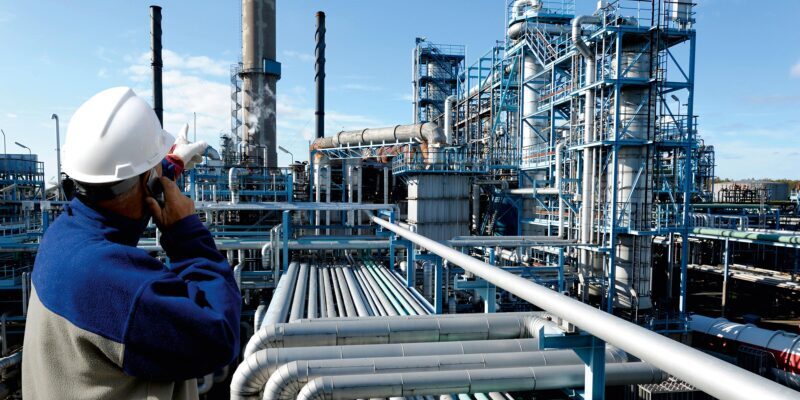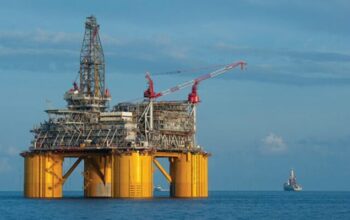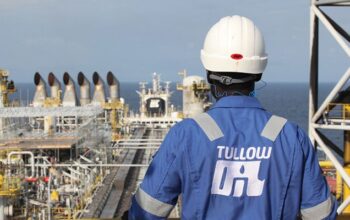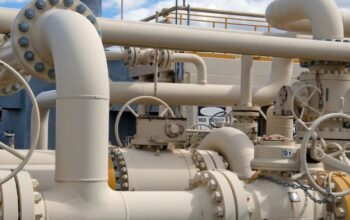Home to an established energy market that provides for a wide range of oil and gas, renewable energy and power distribution investment opportunities, Algeria is well-positioned to serve as a major energy supplier to regional and global markets.
The north African country holds up to 159 trillion cubic feet (tcf) of natural gas resources and 12.2 billion barrels of oil reserves, producing approximately 970,000 barrels of oil and 9.9 billion cubic feet of gas per day.
Algeria is the fifth-largest global exporter of liquefied natural gas (LNG) in the world, thus contributing to over 80% of Africa’s 2023 output for liquid gas alongside Nigeria, Libya and Egypt.
In 2022, the country’s gas exports averaged 56 billion cubic meters, earning $50 billion in revenue. Natural gas contributes approximately 19% of Algeria’s GDP growth and represents 93% of the country’s total exports.
Strategically situated at the crossroad of Africa and Europe, Algeria is a major supplier of natural gas to the European market.
As such, Algeria has prioritized the development of pipelines, LNG facilities and export terminals to transport gas to international markets more efficiently.
Gas from the North African country is exported to Europe through the Medgaz Pipeline – a 757-km pipeline that links Algeria to Spain – and the TransMed pipeline – a 2,475-km pipeline that links Algeria to Sicily via Tunisia – both of which are supported by a strong domestic pipeline network.
In the midst of recent geopolitical tension between Europe and its largest traditional gas supplier, Russia, these pipelines have proven crucial for the efficient extraction, transportation and distribution of gas to international markets, while using gas export revenues to expand the country’s development of alternative energy supplies, such as renewables.
According to the Gas Exporting Countries Forum, global gas demand is expected to increase by 36% to 5.46 trillion cubic meters per day by 2050.
As such, large-scale investments in Algeria’s oil and gas infrastructure by supermajors such as Eni, TotalEnergies and Chevron have affirmed the country’s importance in maintaining production flows.
In response to increased demand, Algeria’s national oil company, Sonatrach, is currently in negotiations with energy majors to advance shale gas exploration, preparing to launch its next licensing round while tapping into the country’s 20 tcf of estimated shale reserves, which represent the third-largest worldwide. Algeria also implemented a new Hydrocarbon Law in 2019 to simplify fiscal terms to entice investment and accelerate exploration efforts.
Algeria’s immense energy resources and robust domestic infrastructure offer attractive investment opportunities for project developers and financiers to scale up regional energy distribution.
Algeria is a key member of the North African Power Pool (NAPP) – an association of North African countries that collaborate on energy resource optimization – and is well-positioned to supply energy to neighboring markets such as Mali, Niger and Tunisia.
In addition to serving as a major global supplier of oil and gas to international markets, Algeria has sought to strengthen energy collaboration and investment across Africa, providing a range of support mechanisms and high-level technical support to emerging energy players.
The country currently has support programs in play with Uganda, Tanzania, Kenya and Zimbabwe, providing workforce training, investment and fiscal support, as well as service provisions across the upstream, midstream and downstream sectors. This support will prove critical in developing frontier oil and gas markets across the continent.
By leveraging revenues from oil and gas exports, Algeria is well positioned to fast-track plans to generate between 30% and 40% of its electricity from renewables by 2030.
Abundant solar and wind prospects have initiated a strong slate of renewable projects in the country and created opportunities for wider distribution networks to supply clean energy across the NAPP.
Algeria currently produces nearly 80 billion kWh of power per year, and with consumption measured at 66.65 billion kWh per year, the country has the potential to supply surplus power to regional markets.
Algeria has also spearheaded the development of solar manufacturing facilities in-country, with factories opening in the Boukherana Industrial Zone in Ouargla Province.
These new facilities are poised to lower import costs for solar manufacturing materials for Algeria’s regional neighbors, thus incentivizing the development of renewable energy projects while bringing sustainable energy to regional markets.
![]()




